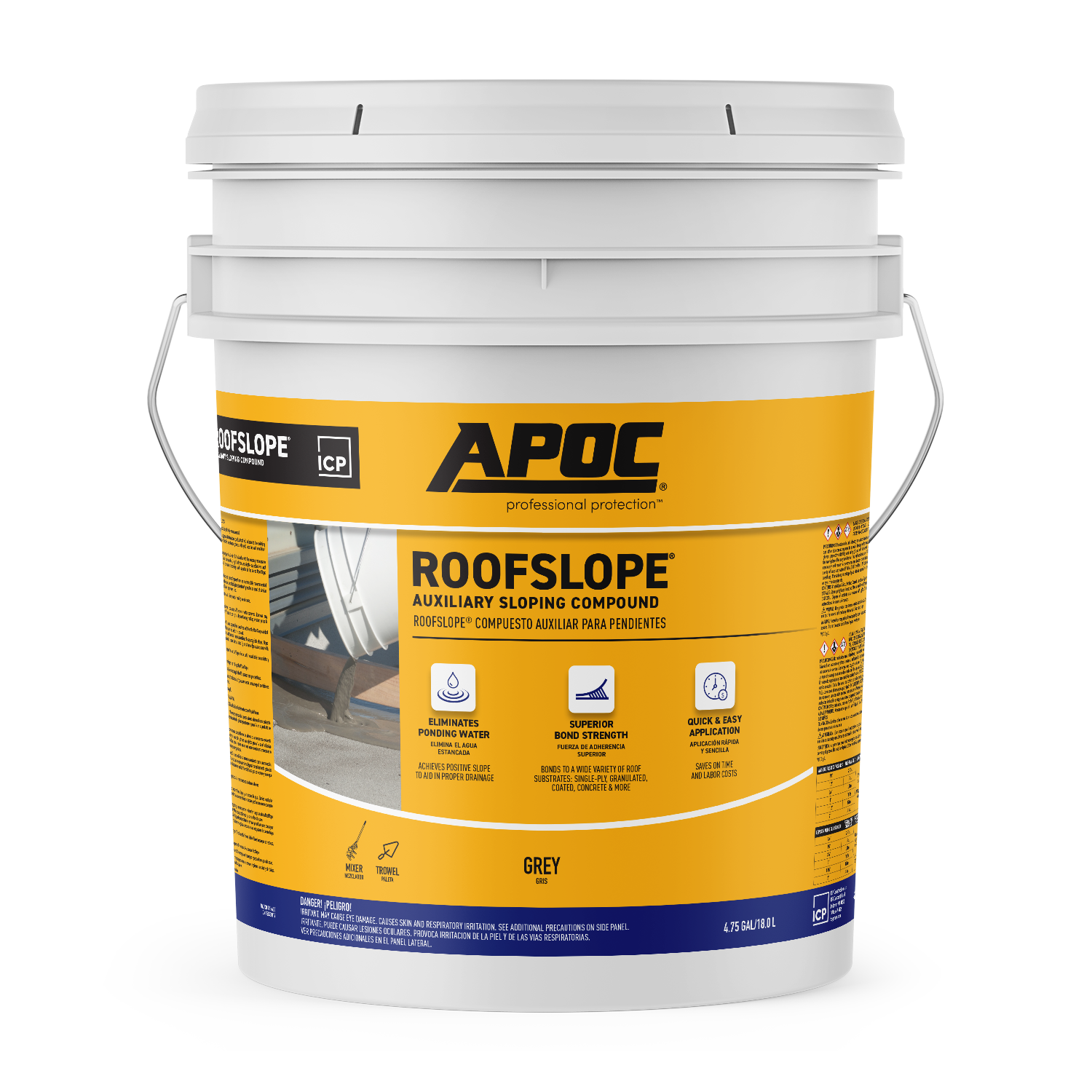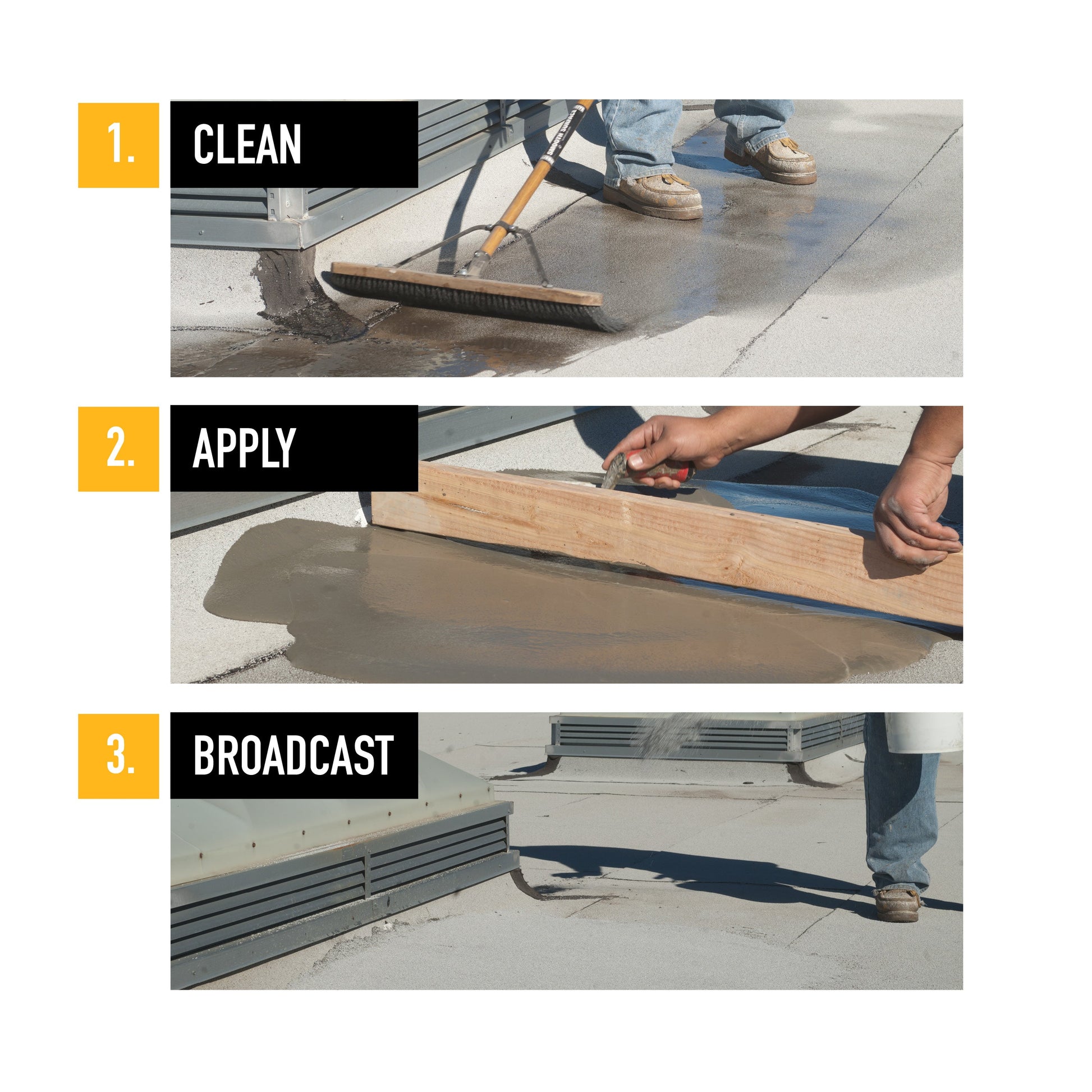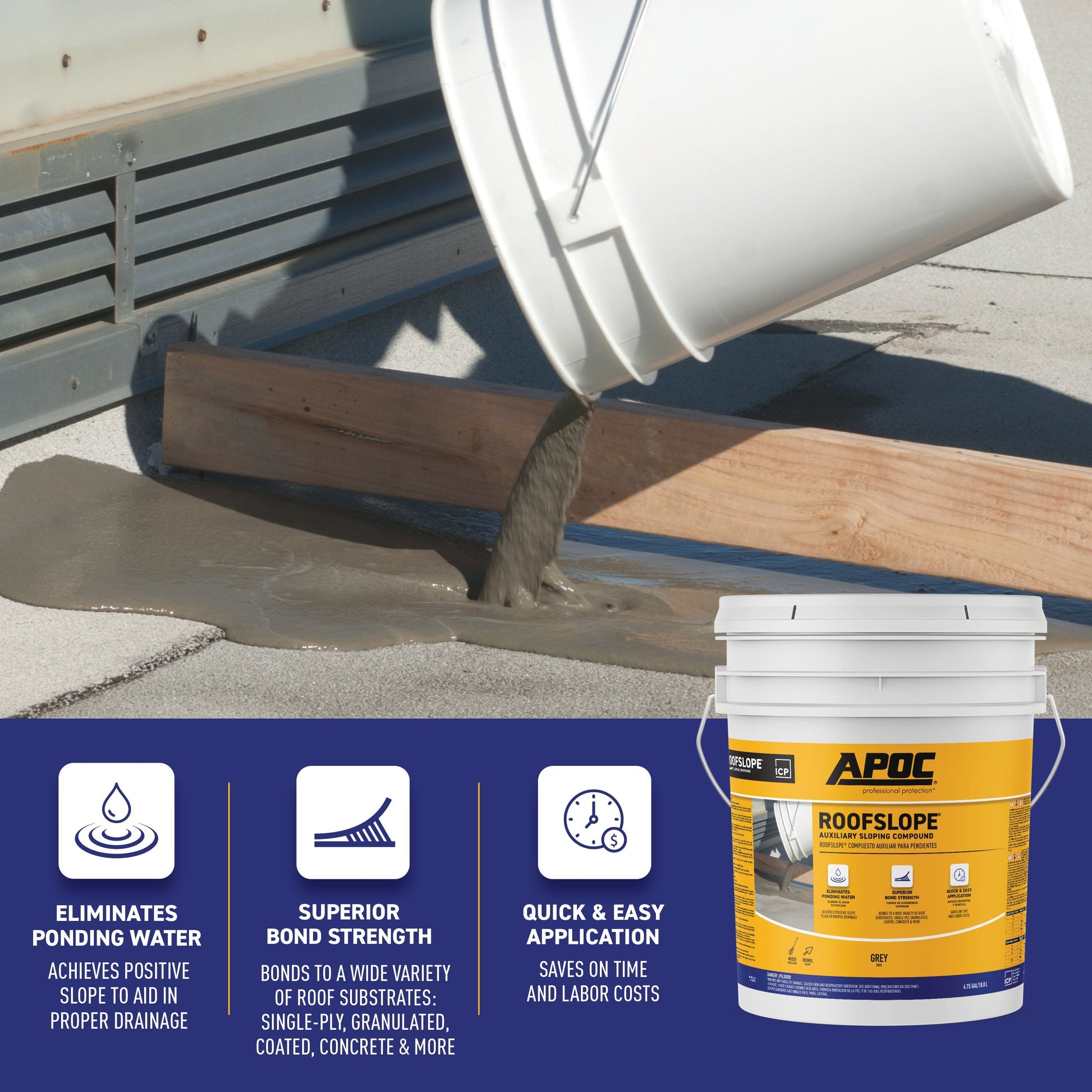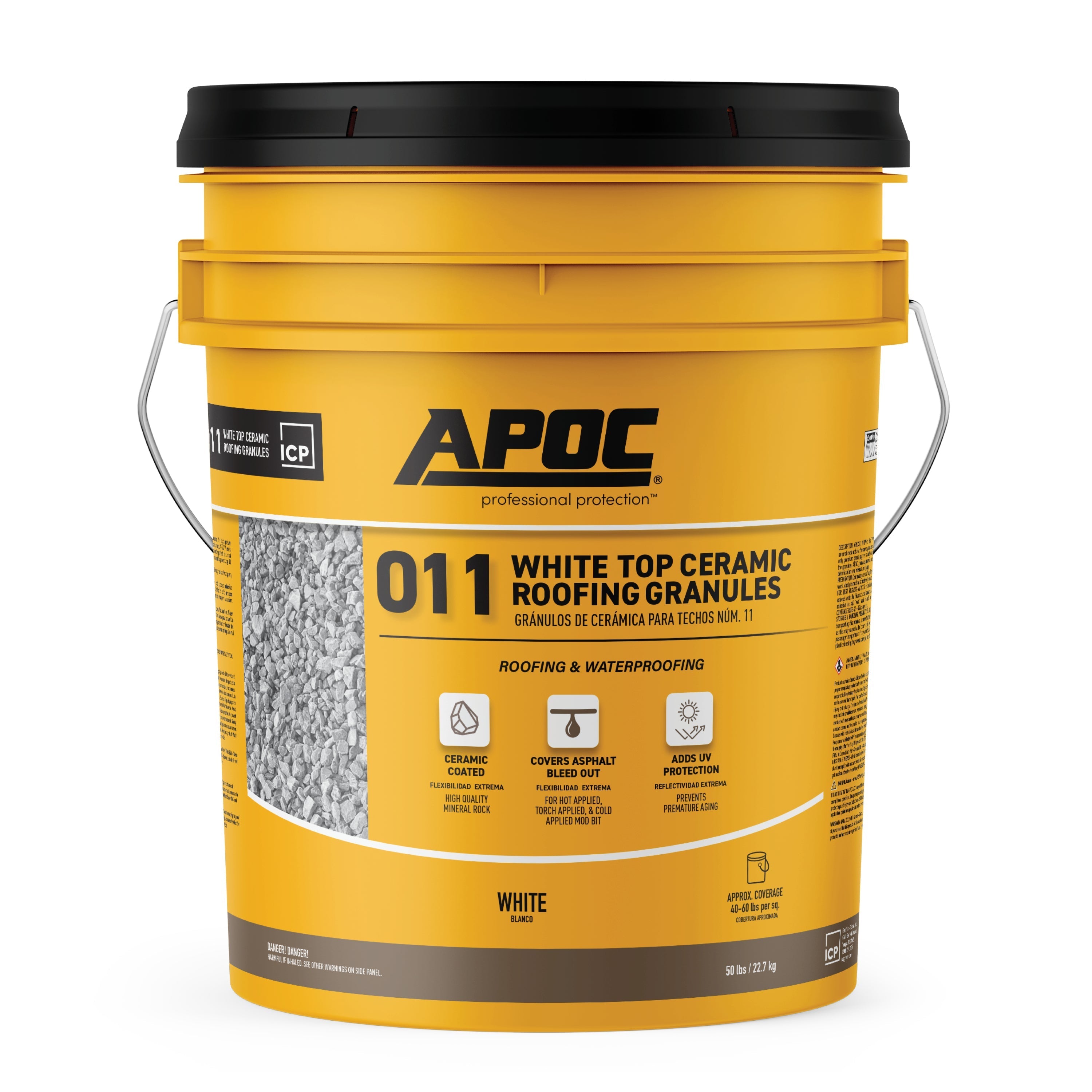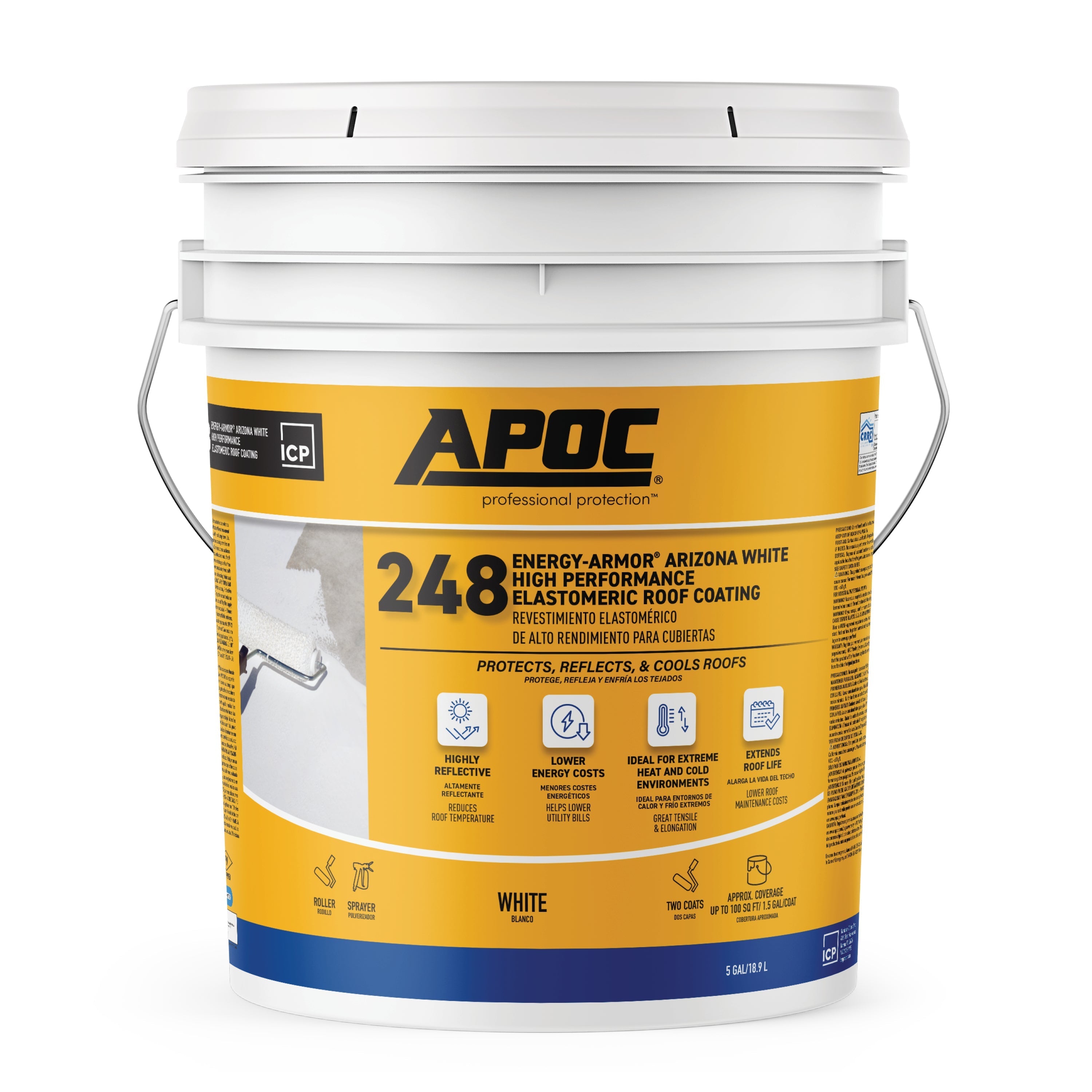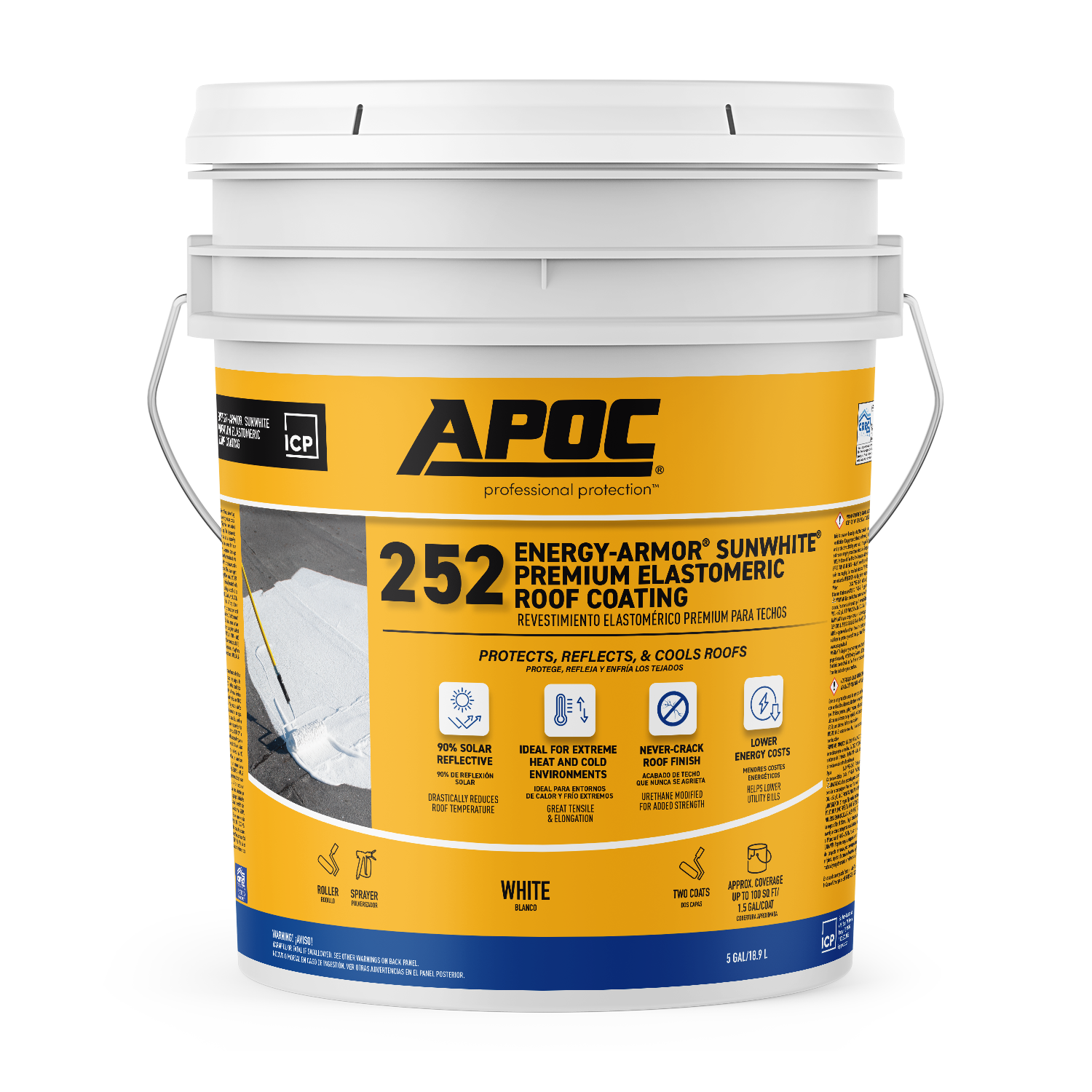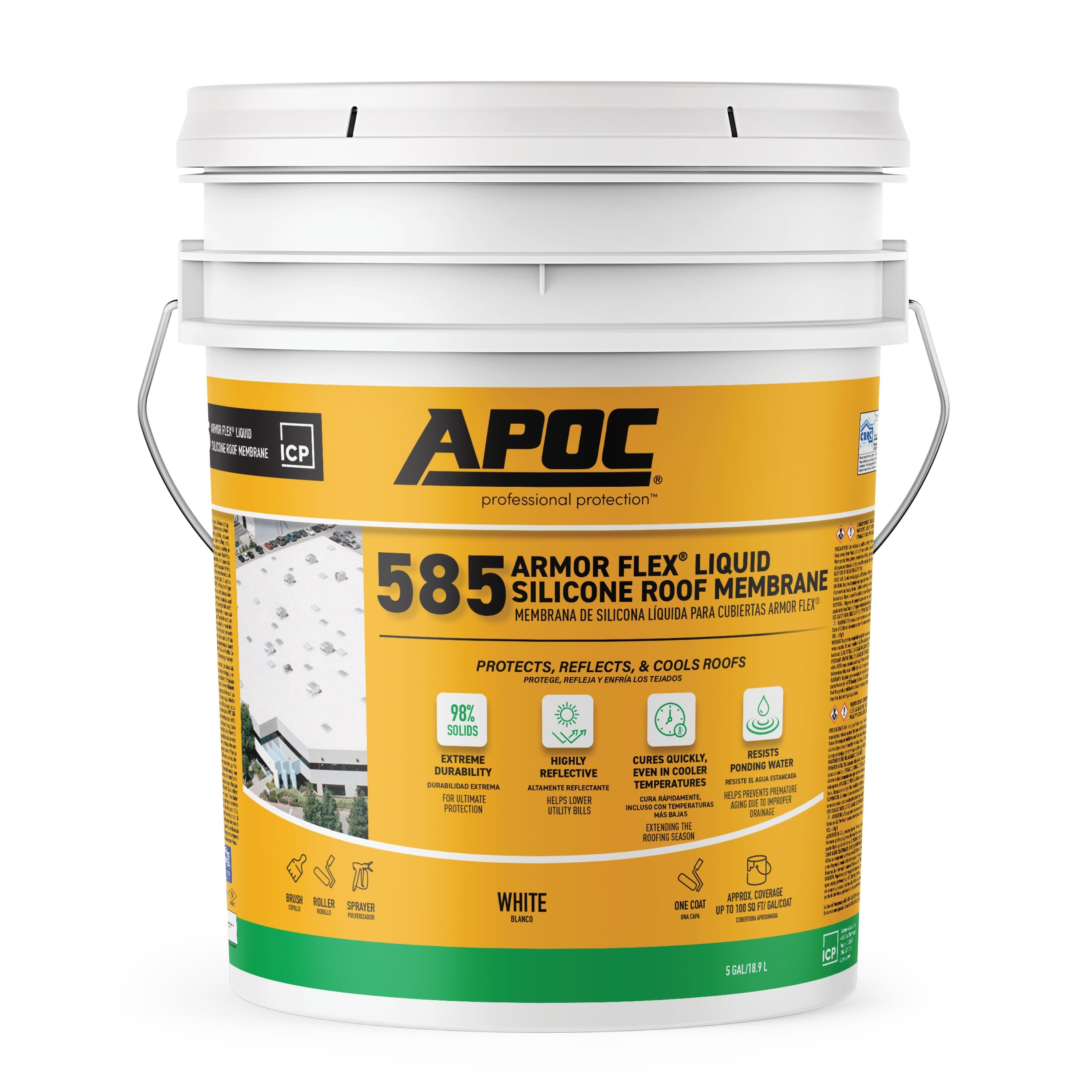1
/
of
3
APOC® RoofSlope®
- Eliminates Ponding Water - Achieves Positive Slope to Aid in Proper Drainage
- Superior Bond Strength - Bonds to a Wide Variety of Substrates
- Quick & Easy Application - Saves Time & Labor
APOC RoofSlope Auxiliary Sloping Compound provides a quick and easy way to fill in low spots on flat roofs and achieve positive slope to aid in proper drainage. This patented technology provides a durable finish with the ability to match existing roofing compositions. The RoofSlope compound is excellent for new construction as well as retrofit work, minimizing costs associated with fixing slope-to-drain issues.
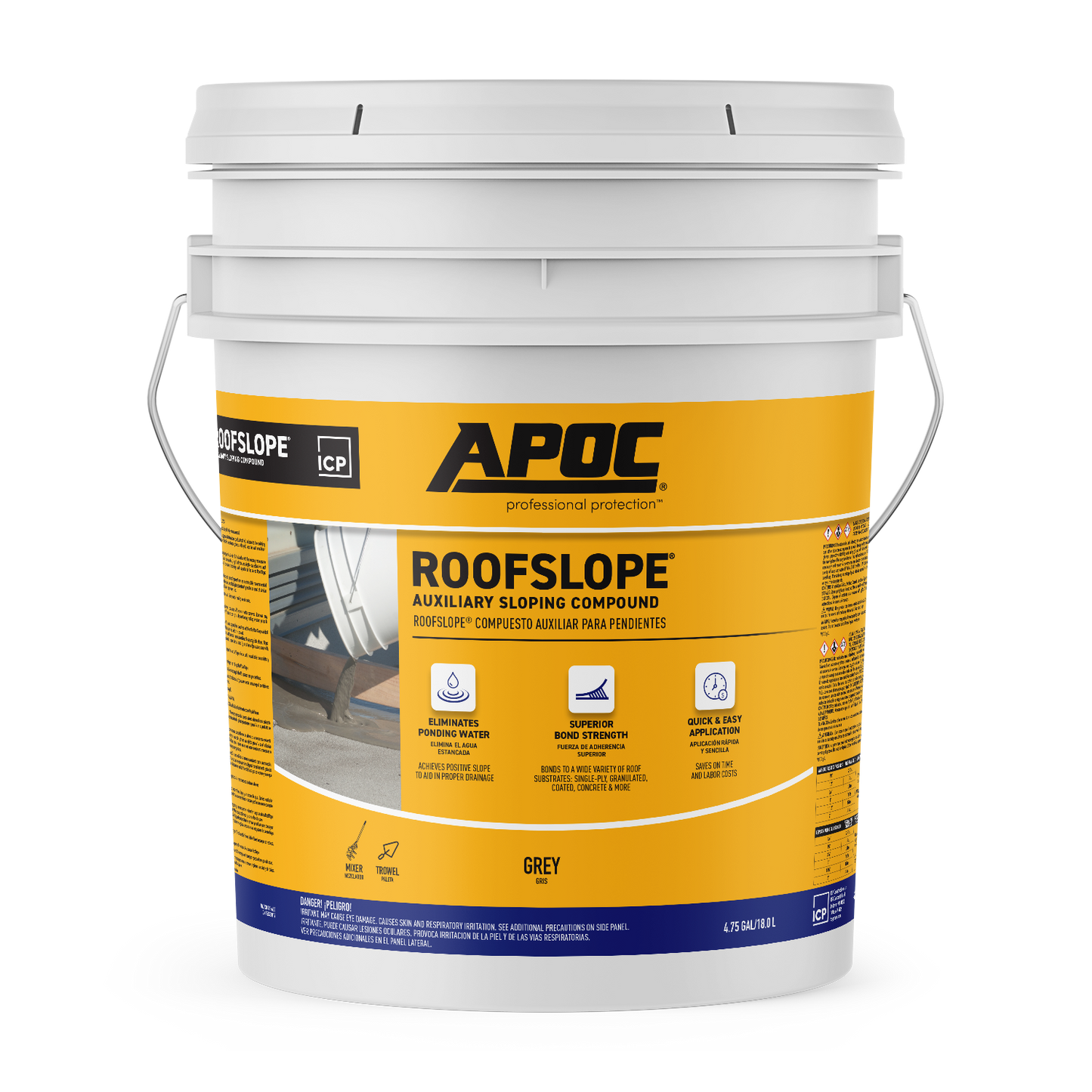
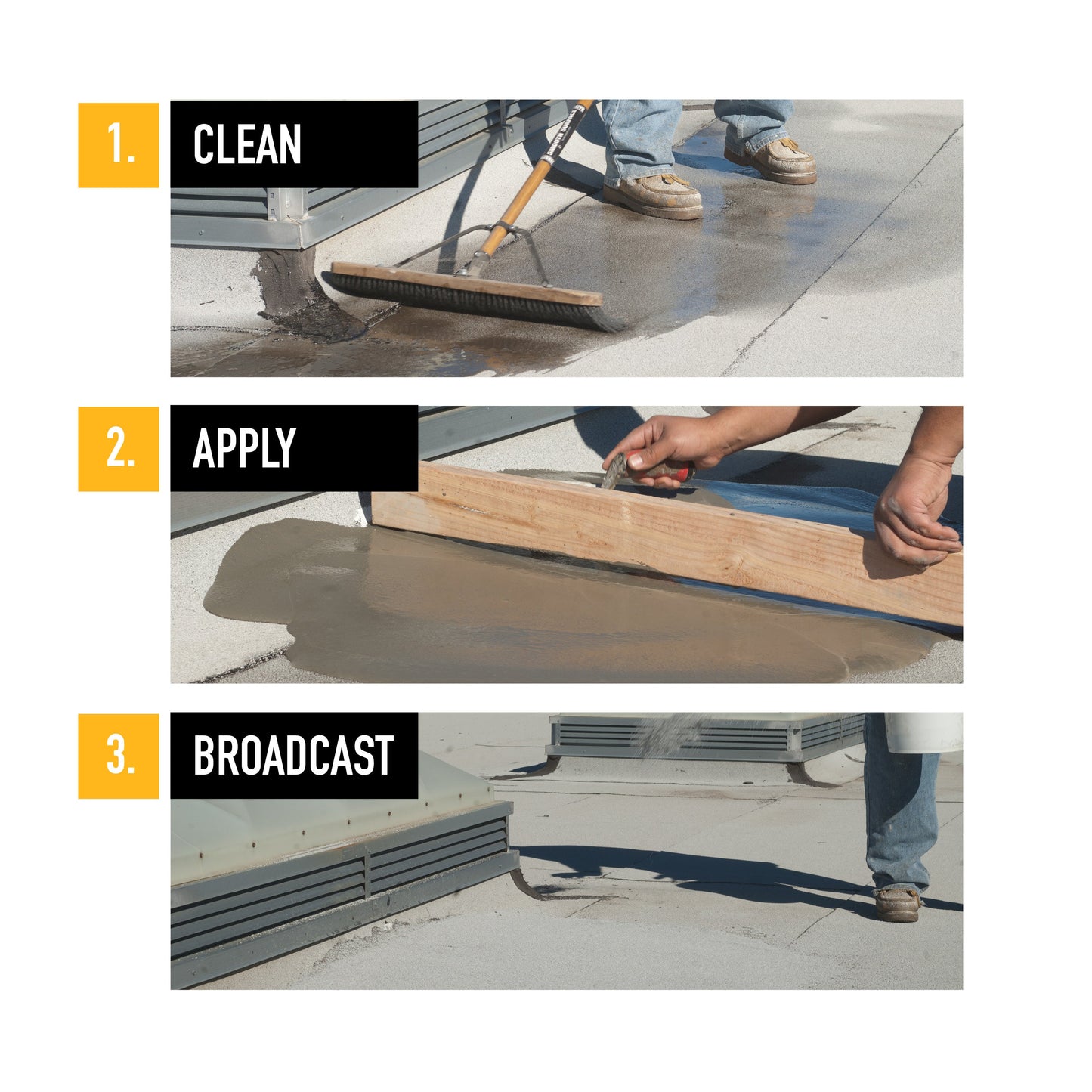
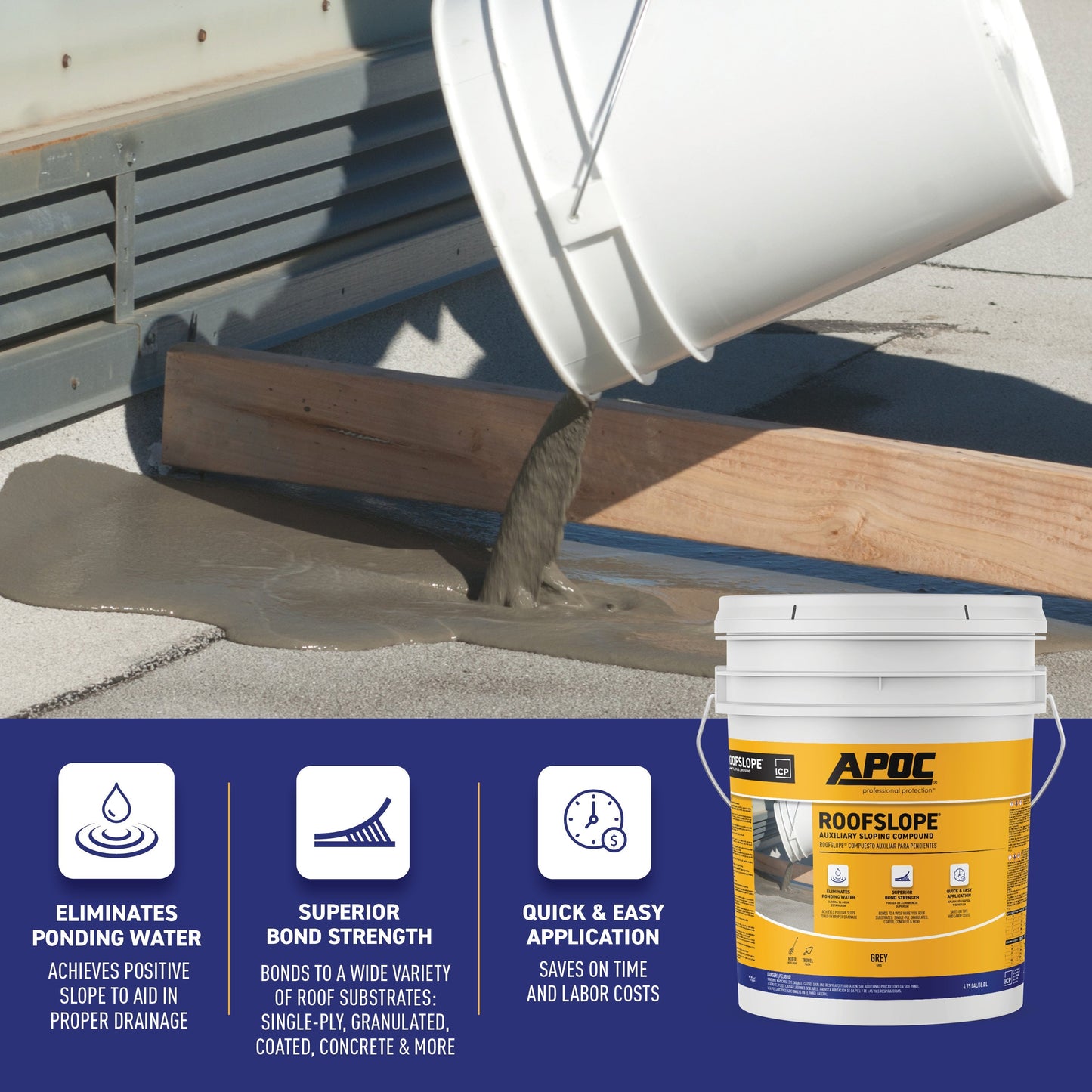
Collapsible content
Product Specifications
| Code | Volume | Weight | Dimensions |
|---|---|---|---|
| 1GU8201 | 5 Gal | 50 lb | 11.8" x 11.8" x 8.8" |


